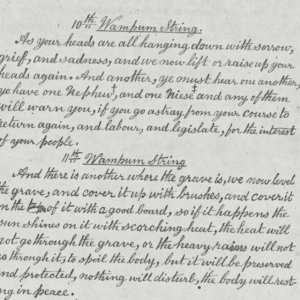
In classic provincial fashion, the Conservatives have made a late-term investment into policing on Six Nations. A total of $1.5 million is being directed to a new guns and gangs initiative on the territory to increase capacity for the Six Nations Police to battle the steep increase in violence on the territory.
In speaking to press, Six Nations Police Chief Darren Montour said the community is sick of the violence and fear brought in by the illegal drug trade on Six. “Enough is enough”, he said.
But is it enough? When it comes to the financial needs of the Six Nations community, and our capacity to police ourselves, independently, safely, ethically – when will it ever be enough?
If you look at the community statistics — Six Nations has a comparable population and geography to the Ontario community of Ingersoll. However, because of jurisdictional issues facing crimes actually being prosecuted at courts and a criminal myth out there that Six Nations is a “lawless territory”, the community has a 300% higher risk of criminality than Ingersoll.
Is the problem then, truly at the feet of Six Nations Police being underfunded, understaffed and lacking capacity? Or is it, as Indigenous people in Canada have been crying out for decades, a systemic failure within the justice system?
Just after the acquittal of Gerald Stanley for the death of Colton Boushie, Prime Minister Justin Trudeau gave an emergency impassioned speech, commissioning change in the Justice System for Indigenous Canadians.
Politicians across the country raised a fist in solidarity for that call.
While Six Nations Police are likely grateful for $1.5 million dollars to help carry out their work — is it enough? Nope.
So what is needed? What will be enough?
There is needed change at the provincial level — for the solicitor general to empower reserve police to act on reserve bylaws and seek regional courts to prosecute those in violation. In fact, the correct solution is something our reserve has been telling provincial officials we need for decades — an on-reserve one-day court where our on-reserve issues can be heard and tried.
The hunger for justice for things like residency by-law violations, family disputes over estates that have been left unsettled for decades and animal control violations is a real demand on the territory. So while the immediate need for a guns and gangs initiative is a critical need — our community can not continue to be left in investigative triage by police due to a lack of change at the government level and a lack of funding.
Recently, the community has watched while our members have become the victims of gun violence, murders, sexual assaults, overdose deaths and more. The social contracts that exist between us as residents and governments as leadership is an unspoken agreement that we will all follow the rules of good behaviour – so long as there is a plan in place for protecting the people. If that protection is not available to us, there is little to convince the people to follow those rules of good behaviour — and so the cycle of violence continues.
Chronic underfunding will always result in political distress for Six Nations. So while the provincial government sits back and acts like Six Nations is fully responsible for “getting our act together” and sorting out our governance issues while they nominally invest in public safety ahead of a provincial election — can equally be seen as enabling a level of dysfunction they are not willing to, or capable of, resolving before election day.
What is needed? Strong, local leadership that will demand investment in social change for Six Nations. Committed relationships with surrounding provincial and federal elected officials to partner together in real, long-term initiatives to bring the standard of living for Six Nations to par with the rest of Southern Ontario. Making safe spaces for the voices of Six Nations residents that are being silenced in fear by organized crime on the territory so their concerns can be addressed. Taking all of that and then looking at how the tripartite policing agreement that is currently not serving Six Nations real, on the ground needs must change and then making that change a reality.






